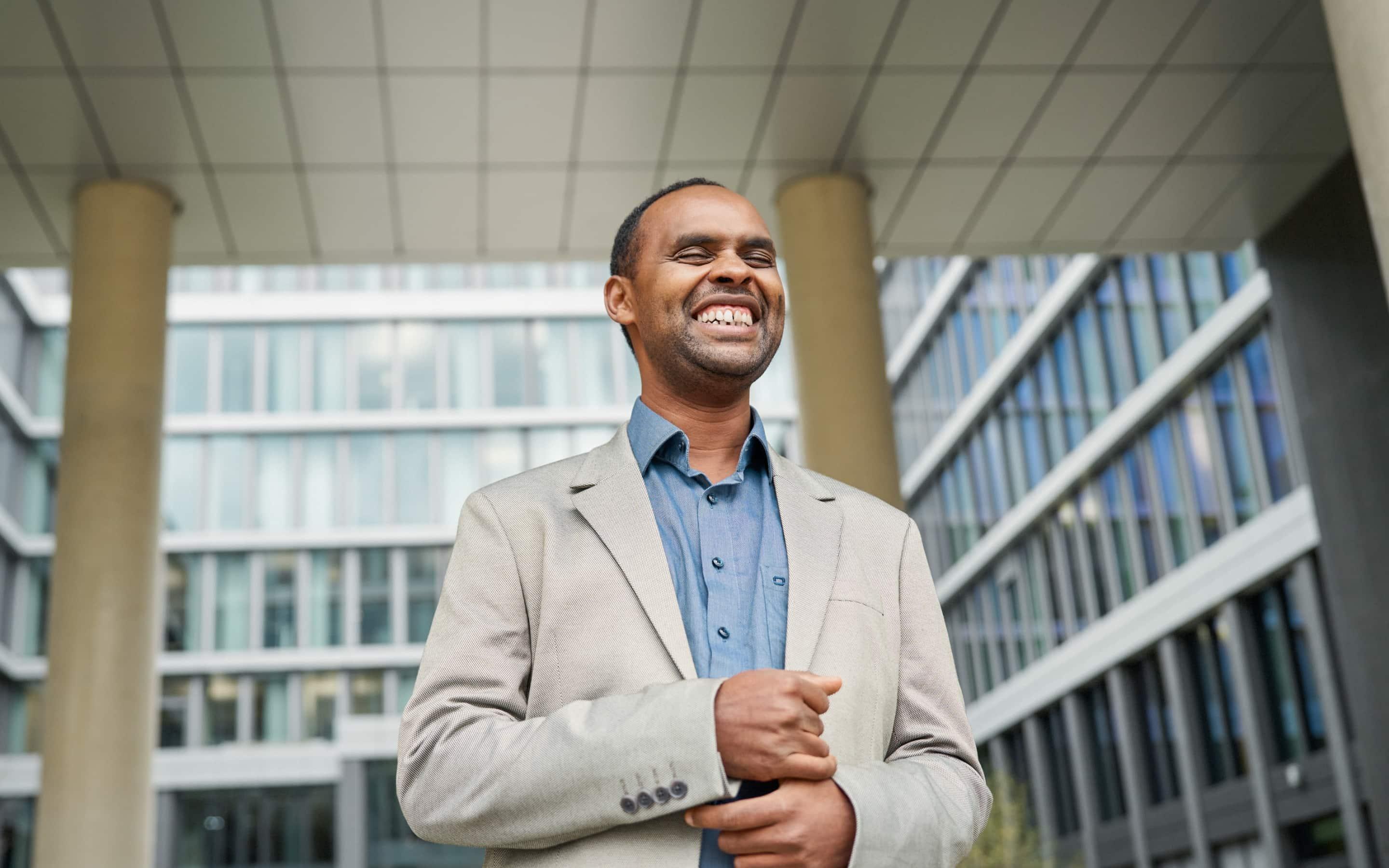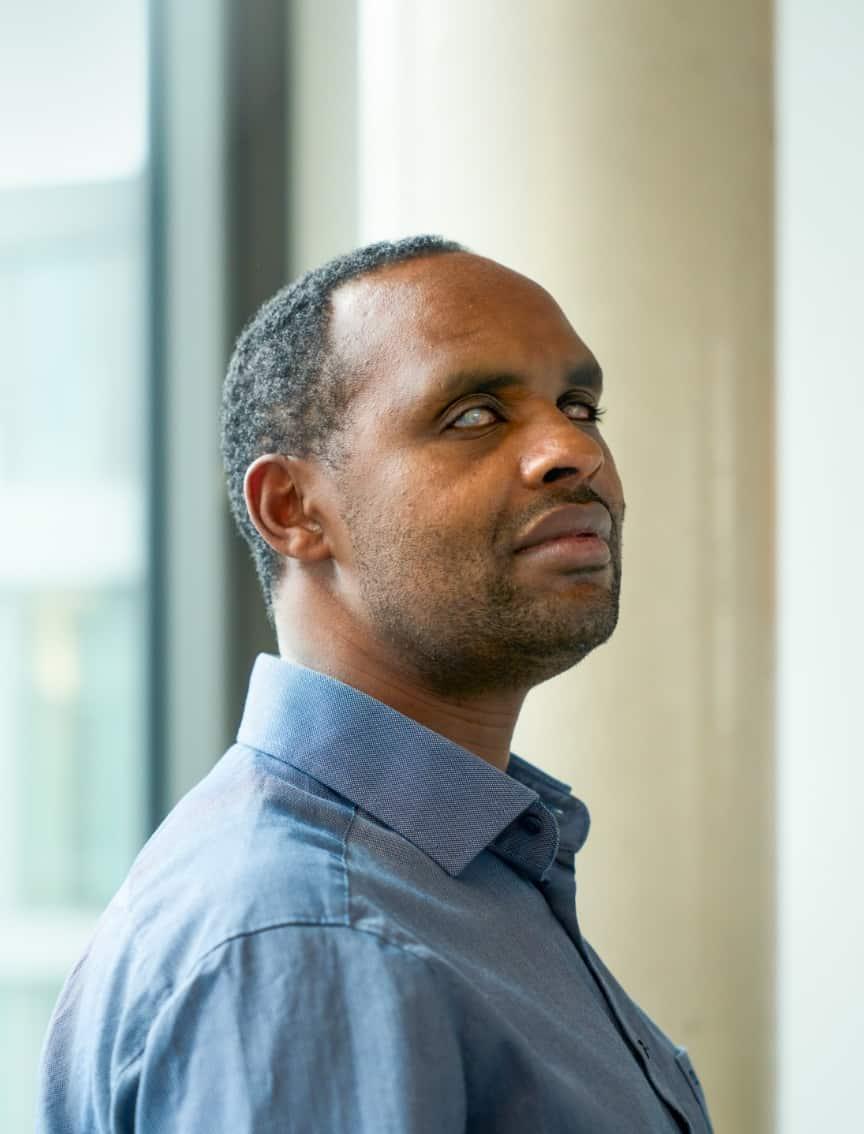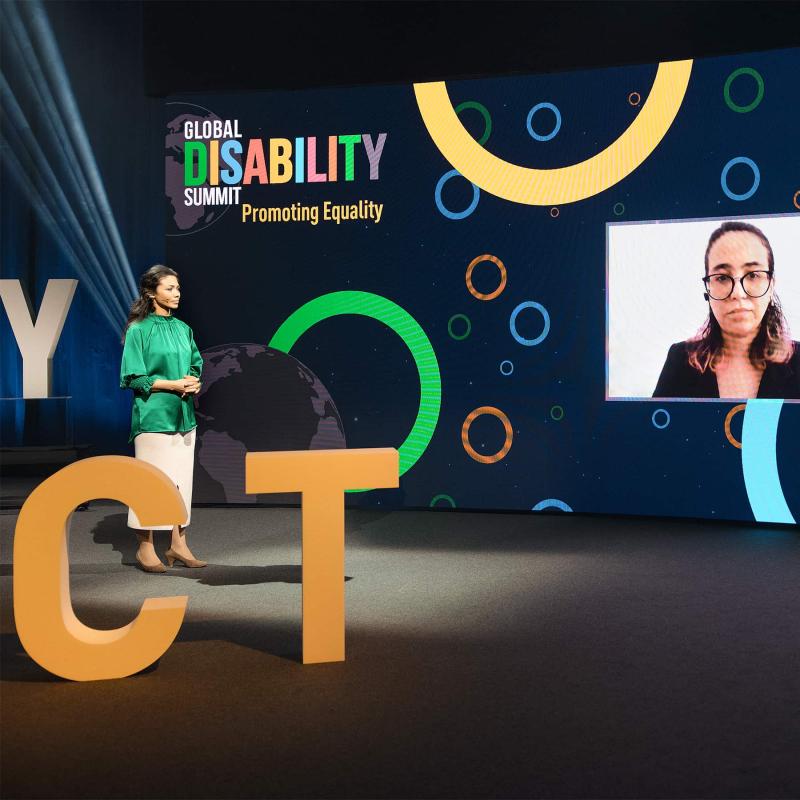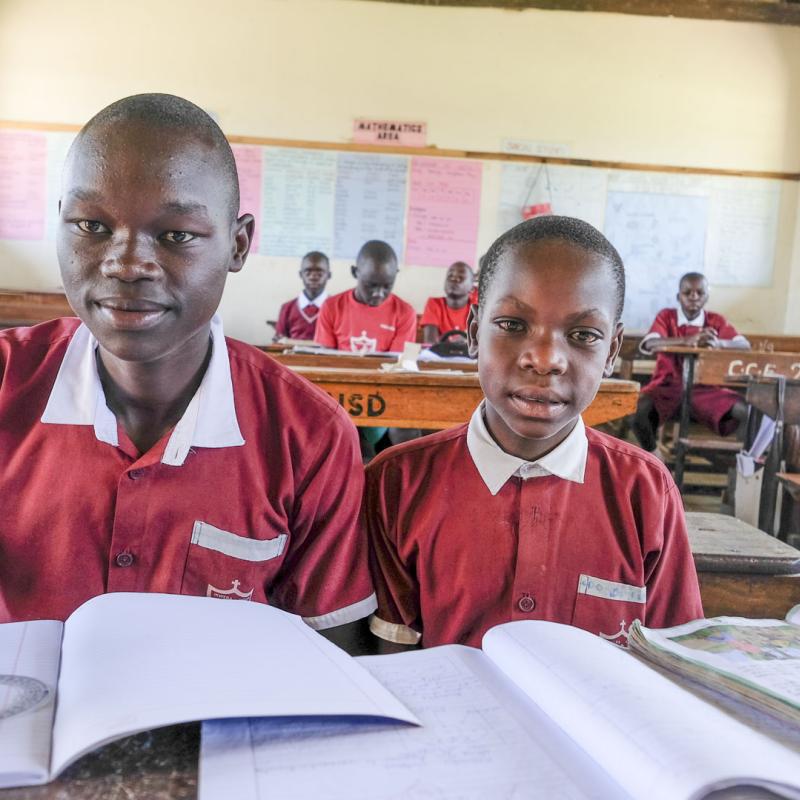 Marina Weigl
Marina Weigl
A lawyer for inclusion
How a blind lawyer from Ethiopia ended up at GIZ in Bonn and why he feels very much at home there.
Deginet Doyiso’s dream was to become a history teacher and open the eyes of young people. Instead, he studied law and became a public prosecutor. That in itself is nothing unusual – plans change. But the idea that he might one day live in Germany and help GIZ with preparations for the Global Disability Summit in Berlin – that was not something he had envisaged.
Doyiso comes from a small village in the south of Ethiopia. His parents were farmers and had eight children of their own to raise, along with four from his father’s first marriage. Life was full of hardships. The children were required to work in the fields as soon as they were old enough.
But not Deginet. At the age of two he contracted an eye infection and lost his sight as a result. From then on he was blind – and consequently unable to help out on the farm. After a great deal of deliberation, he was finally sent at the age of six to a boarding school for the blind, far away from his family. There he stayed for ten months at a time before returning home for the summer holidays.
Deginet loved boarding school life. He learned Braille, learned to read and write with it and spent time with classmates doing all the things that children of that age do: running, playing games, singing. ‘I was very lucky to get a place at this boarding school,’ says Doyiso looking back. Originally founded by Catholic missionaries, the school was a safe little haven of its own, far away from the world of sighted people. Although he missed his family, he really wanted for nothing.
An outstanding school leaving certificate and a move to the capital
After six years at boarding school, he returned to his home and family and attended the local grammar school. Since this new school was not equipped for blind pupils, he continued to receive support and resources from the boarding school. Thanks to this support and an unbridled enthusiasm for learning, Doyiso achieved results in his school leaving exams that earned him a scholarship and a place at university. He moved to Addis Ababa and enrolled at the Faculty of Law – although since most courses were not accessible to blind students, his choice was limited. But law – ‘the study of language’, as Doyiso calls it – that was possible. The growth of digitalisation was an enormous help. With the right tools he was able to read texts that were available electronically. ‘With normal books, it was difficult.’ They had to be scanned.
So he ploughed his way through law school, graduated with honours, returned to his home region and became a district attorney. ‘For a blind person, considered unable to contribute much to the common good, this job was a dream come true.’ He performed this role for several years, until one day he no longer felt satisfied with what he had achieved. From an early age, his disability had awakened a thirst for knowledge and taught him to take learning and education seriously. He now wanted to go further – and set his mind on a PhD.
He sent off his application for a research project to all possible faculties at home and abroad, including to a professor at the University of Cologne, who finally accepted him as a PhD student. What started out as a doctorate in linguistics and law eventually became a doctoral thesis comparing legal systems in the EU and Ethiopia. A research grant from the German Academic Exchange Service (DAAD) provided the financial security he needed. His wife, whom he had married during his time as district attorney, and his two sons came with him. ‘The whole family changed location, country and continent.’ That was in 2019.
A blind person abroad
Life is an adventure, for Deginet Doyiso more so than most. Finding your way as a blind person in a completely foreign environment – initially without language skills or an extended social network – was no easy task. ‘Without the help of my sighted wife, this would’ve been all but impossible.’ She supported him a lot in the early days in particular, and also accompanied him to the university. But after taking courses in mobility and orientation, he soon learned how to get there on his own. Before long, he was also making his way unaided from Cologne to the GIZ offices in Bonn.
As so often in Deginet Doyiso’s life, this was another stroke of serendipity. Although underpinned by continuous learning and hard work, each step along his career path somehow followed on logically from the last. While he was waiting for the results of his PhD thesis, he was sent a link with an advertisement for an internship at GIZ’s Global Programme on Inclusion of Persons with Disabilities. ‘Why not do something useful with my time?’ Doyiso reasoned. So he applied for the job.
The application process itself made a positive impression – the relevant websites were barrier-free, accessible and user-friendly even for him. ‘Right from the start, GIZ seemed to be an inclusive company. I liked that.’ He was offered the job of intern, then in summer 2023 became an advisor in the same team. Since then, the 41-year-old has spent much of his time helping with preparations for the inclusion summit in Berlin. ‘It suits me down to the ground, of course.’ As he will be attending the summit, the City of Cologne’s Office for Integration has assigned a companion to him to assist with travel and other everyday challenges – from mobility to cash dispensers. Having a companion also enabled him to take part recently in regional preparatory conferences in Kenya and Thailand.
 Marina Weigl
Marina Weigl
 Marina Weigl
Marina Weigl
The goal: leave no one behind
Doyiso hopes that the summit will focus more attention on the topic of inclusion and that it remains on the international agenda. For him, inclusion is both a human right and a development issue. ‘How can the SDGs be achieved if you disregard 16 per cent of the world’s population?’ 16 per cent is the estimated share of people with disabilities worldwide.
This is what motivates him to continue his work at GIZ – ‘perhaps one day in Ethiopia’. Because at GIZ he can help to ensure that, in keeping with the SDG motto, ‘no one is left behind’. For him, one thing is clear: inclusion – at GIZ as elsewhere – is a process achieved through continuous improvement. ‘The best solutions probably always come from those who are closest to the problem,’ says Deginet Doyiso on the topic of inclusion. His words could equally be applied to so much more.

